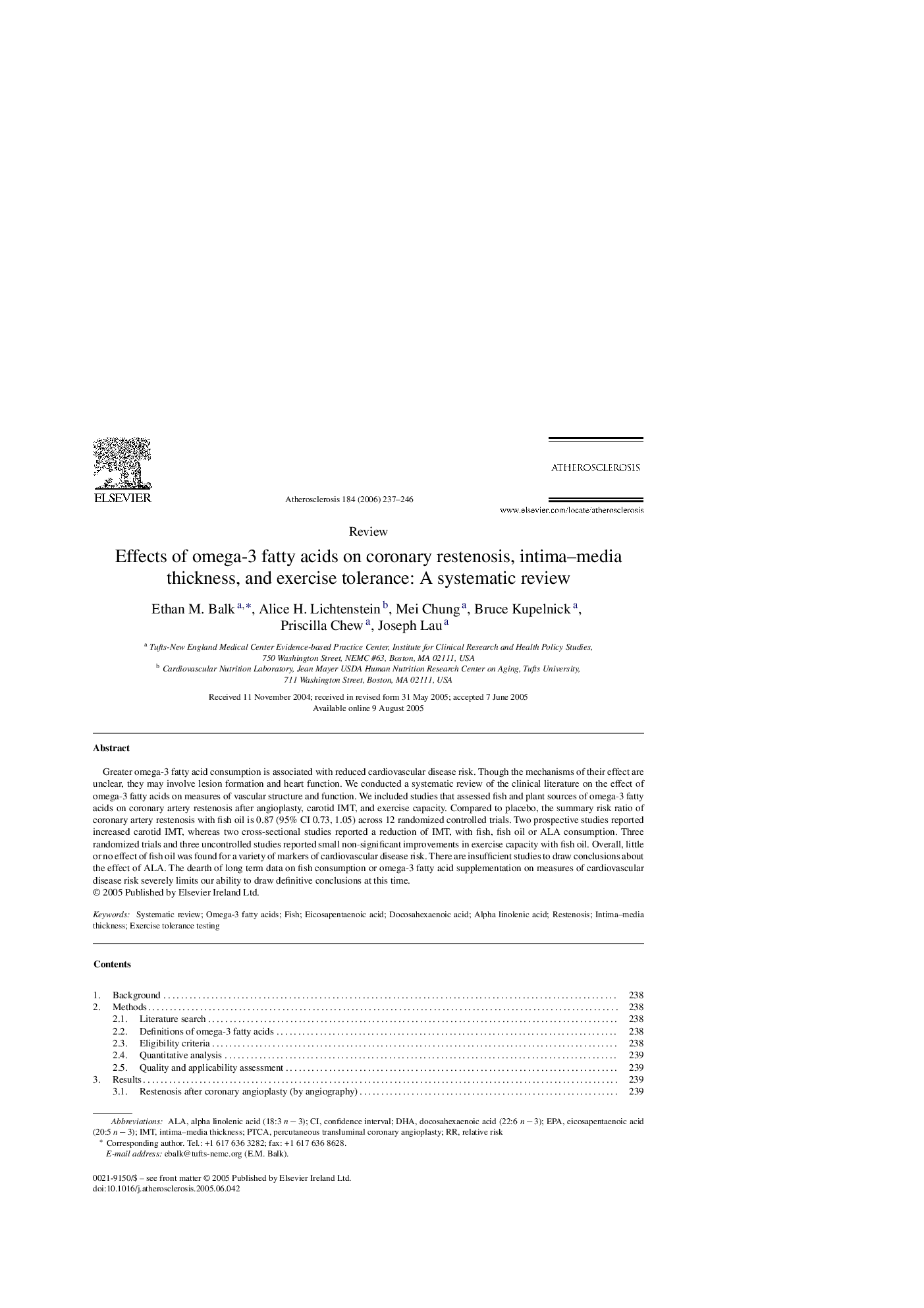| Article ID | Journal | Published Year | Pages | File Type |
|---|---|---|---|---|
| 2895280 | Atherosclerosis | 2006 | 10 Pages |
Greater omega-3 fatty acid consumption is associated with reduced cardiovascular disease risk. Though the mechanisms of their effect are unclear, they may involve lesion formation and heart function. We conducted a systematic review of the clinical literature on the effect of omega-3 fatty acids on measures of vascular structure and function. We included studies that assessed fish and plant sources of omega-3 fatty acids on coronary artery restenosis after angioplasty, carotid IMT, and exercise capacity. Compared to placebo, the summary risk ratio of coronary artery restenosis with fish oil is 0.87 (95% CI 0.73, 1.05) across 12 randomized controlled trials. Two prospective studies reported increased carotid IMT, whereas two cross-sectional studies reported a reduction of IMT, with fish, fish oil or ALA consumption. Three randomized trials and three uncontrolled studies reported small non-significant improvements in exercise capacity with fish oil. Overall, little or no effect of fish oil was found for a variety of markers of cardiovascular disease risk. There are insufficient studies to draw conclusions about the effect of ALA. The dearth of long term data on fish consumption or omega-3 fatty acid supplementation on measures of cardiovascular disease risk severely limits our ability to draw definitive conclusions at this time.
